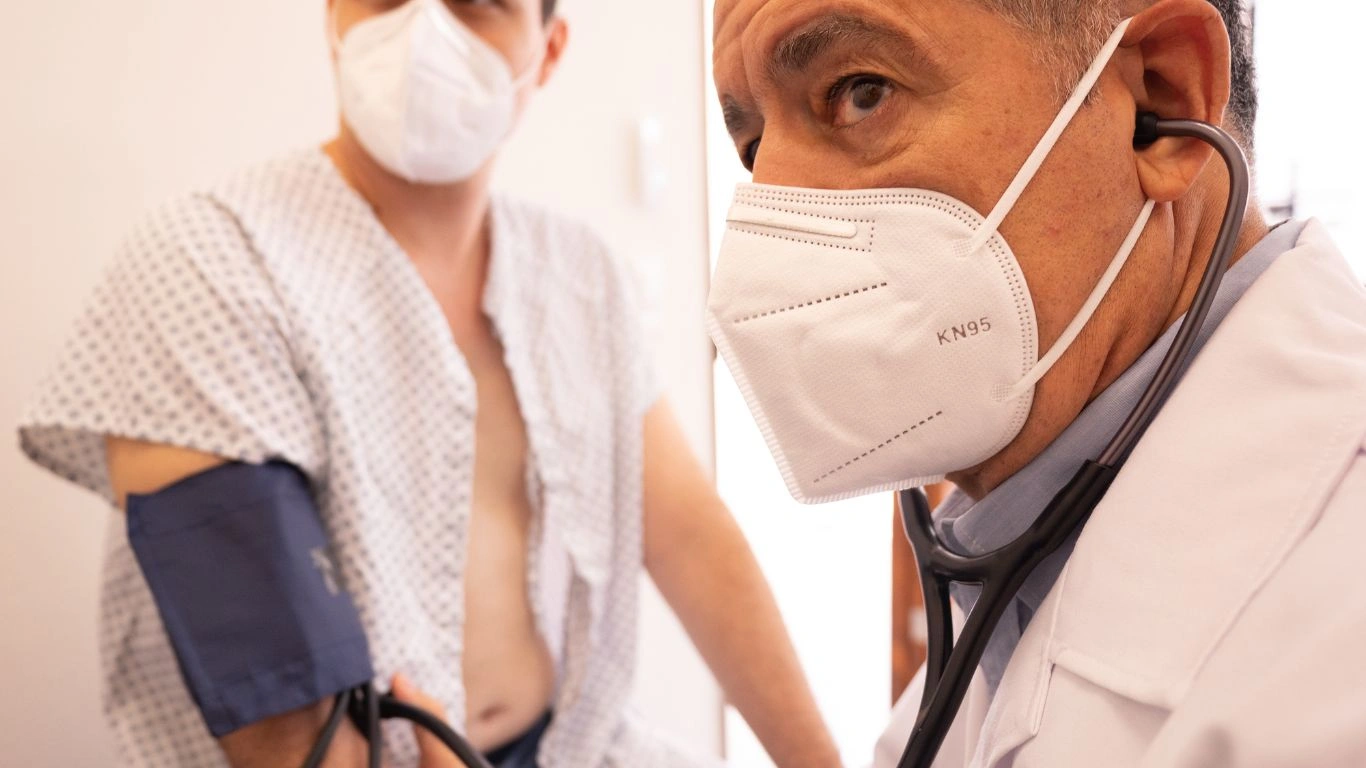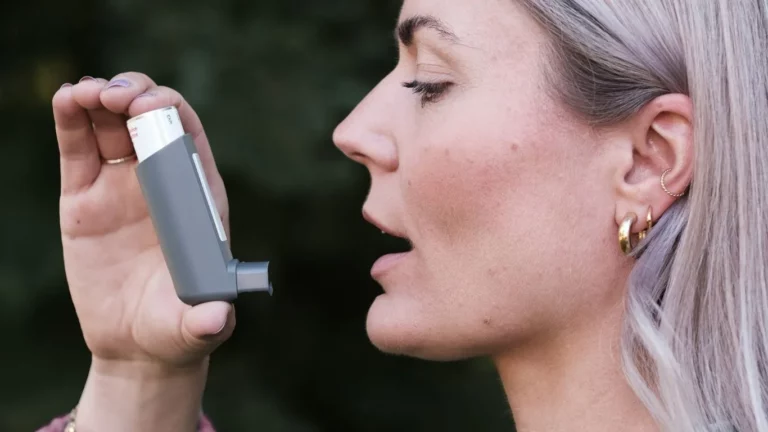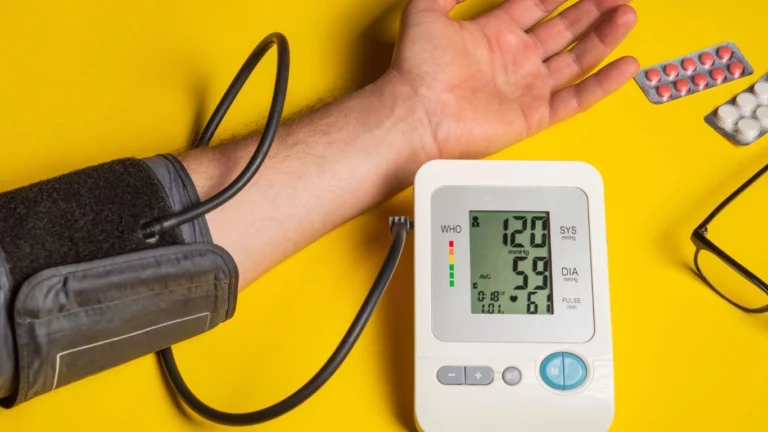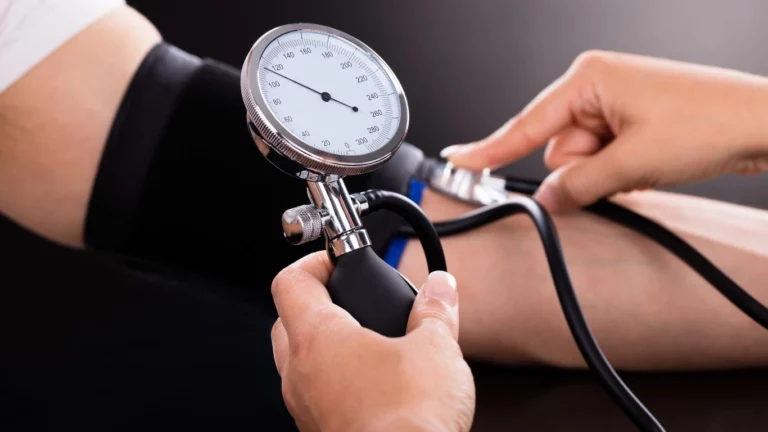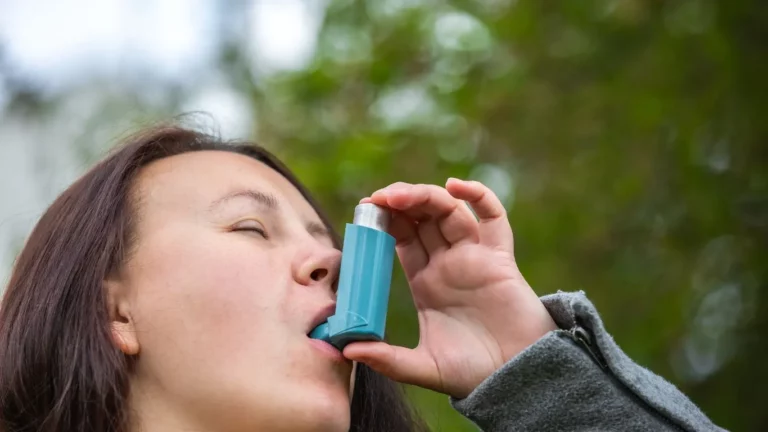Can Allergies Affect Blood Pressure? Uncover the Surprising Link
Can allergies affect blood pressure levels? It’s a question I’ve heard more than a few times in my clinic—especially during spring and fall when allergy symptoms are in full bloom. You’d be surprised how often patients come in worried about their seasonal sniffles, and we end up uncovering a surprising link to their blood pressure numbers. As an internal medicine physician who’s worked with hundreds of hypertension cases, I’ve seen how allergies can sneakily influence cardiovascular health in ways that aren’t always obvious. Let’s dive into this connection, because it’s more important than most people think.
How Allergies and Blood Pressure Might Be Linked

Most folks don’t naturally pair “allergies” and “blood pressure” together. One makes you sneeze, the other is about heart health—right? But the body doesn’t work in isolated compartments. It’s all one complex, interconnected system. And when the immune system gets triggered, like in allergic reactions, there can be ripple effects.
Immune System Overdrive and Its Vascular Impact
When you’re dealing with allergies—whether it’s pollen, dust, pet dander, or even food allergens—your immune system goes into full battle mode. This involves releasing histamines, which are chemicals that help the body deal with allergens but also cause inflammation. That inflammation isn’t just confined to your nose or skin; it can affect blood vessels too.
Here’s where it gets interesting: histamines can cause your blood vessels to either dilate or constrict, depending on the context and your body’s response. That means your blood pressure could fluctuate during an allergic episode. I’ve had patients notice lightheadedness or a pounding headache during allergy season, only to discover their blood pressure was way off the charts—or unusually low.
The Role of Medications: Antihistamines and Decongestants
This is a biggie. Many people take over-the-counter meds for allergies without thinking twice. But not all allergy medications are benign for people with hypertension. Decongestants, for instance, can raise blood pressure by narrowing blood vessels. As a doc, I’ve had to gently remind more than one patient to check their labels and maybe ditch the pseudoephedrine.
- Decongestants (like pseudoephedrine or phenylephrine) can raise blood pressure significantly.
- Antihistamines are usually safer but can cause drowsiness or interact with other medications.
- Combination allergy meds often sneak in decongestants, so be careful with multi-symptom formulas.
Always read the label, and if you have high blood pressure, consult your doctor before starting any new allergy remedy. Yes, even the “natural” ones.
Can Allergies Cause Blood Pressure to Drop?

Believe it or not, yes. While most people are concerned about high blood pressure, severe allergic reactions—like anaphylaxis—can cause blood pressure to plummet dangerously low. In those situations, the blood vessels suddenly dilate too much, leading to a sharp drop in circulation. This is a medical emergency.
I’ve had a patient come into the ER after eating shellfish, breaking out in hives, and passing out. Her blood pressure was critically low, and it took quick administration of epinephrine to stabilize her. Thankfully, she was okay—but it really drove home how allergies can have cardiovascular consequences most folks aren’t aware of.
Symptoms of Blood Pressure Drop from Allergic Reactions
- Lightheadedness or dizziness
- Fainting
- Rapid, weak pulse
- Confusion or slurred speech
- Cold, clammy skin
Now, this isn’t the kind of thing that happens with a little pollen in the air—but for those with severe allergies, it’s crucial to recognize the signs and act fast. Carrying an epinephrine injector can be lifesaving.
Stress, Allergies, and Hypertension: A Vicious Cycle

One thing I’ve noticed over the years? Allergy flare-ups can lead to stress, and stress is a known trigger for elevated blood pressure. Imagine not sleeping well because your nose is stuffed, or your skin is constantly itchy. Over time, that chronic discomfort wears you down—mentally and physically.
Here’s how it plays out in real life:
- Poor sleep due to nasal congestion → fatigue and higher cortisol levels
- Increased anxiety about symptoms → stress-induced hypertension
- Frustration from chronic discomfort → emotional eating, skipped workouts, or inconsistent meds
It’s not just about allergies causing blood pressure issues directly—it’s about the whole lifestyle disruption that follows. As a physician, this is the stuff I try to dig into during visits. Sometimes managing blood pressure means looking beyond just the numbers and diving into what’s going on in a patient’s environment and daily life.
Allergy Season and Blood Pressure Monitoring: Why Timing Matters

If you’re someone who deals with high blood pressure and also happens to have allergies, timing your readings can make a big difference. I’ve had patients come in with oddly elevated readings in the spring and fall—turns out, their allergies were raging, and they were unknowingly triggering sympathetic nervous system responses that raised their BP. Sneezing, sinus pressure, and even disrupted sleep can mess with those numbers.
So here’s a tip I often share: try to track your blood pressure at the same time each day, preferably when your allergy symptoms are more stable. Early morning or late evening tends to be best, after you’ve had a chance to settle. And always jot down what was going on—if you were sneezing like crazy all day, that’s useful info.
Helpful Tools for Consistent Tracking
- Home blood pressure monitors: Look for validated devices with cuff sizes that match your arm.
- Symptom tracker apps: Some apps let you log allergy symptoms and correlate them with BP readings.
- Sleep quality monitors: Poor sleep from allergy-induced congestion can skew morning BP levels.
Keeping a symptom log alongside your BP diary helps us physicians connect the dots. It’s all about context—something I always emphasize in clinic. Numbers don’t tell the whole story unless you understand what’s happening around them.
Can Allergies Affect Blood Pressure Levels in the Long Term?

This is a nuanced one. In the short term, allergic reactions might cause a spike or drop in blood pressure, but if these episodes are frequent and unmanaged, they can create a kind of chronic stress environment in the body. And chronic stress—yep, you guessed it—can lead to persistent hypertension over time.
I’ve seen patients with poorly controlled allergic rhinitis end up on antihypertensive meds simply because their sleep was constantly disrupted, they were always fatigued, and their cortisol levels were likely hanging out in the danger zone for too long. Not to mention that some people skip workouts or eat poorly when they’re feeling crummy, which adds fuel to the fire.
Underlying Inflammation: A Hidden Risk
One of the theories gaining traction in the medical world is the idea that chronic low-grade inflammation, like that caused by ongoing allergies, might contribute to vascular dysfunction. While we’re still exploring all the pathways, there’s growing evidence that long-term allergic conditions could nudge the body toward higher cardiovascular risk.
Personally, I think we’ll see a lot more research on this in the next decade. In my practice, I try to take a proactive approach—if I see a patient struggling with allergies and creeping blood pressure, I don’t just throw meds at them. We talk about allergy management too. It’s all connected.
Managing Blood Pressure During Allergy Season: Practical Tips

Okay, so now that we’ve broken down the science-y stuff, let’s talk real life. What can you actually do to protect your blood pressure if you’re a seasonal allergy sufferer? Here are some strategies I often recommend to my patients—and yes, I use them myself too during peak pollen months!
1. Choose Allergy Medications Wisely
We touched on this in Part 1, but it bears repeating. Always check for decongestants in your meds if you’re hypertensive. Better yet, ask your doctor or pharmacist for guidance. I usually suggest second-generation antihistamines like loratadine or cetirizine—they tend to be gentler on blood pressure.
2. Stay Hydrated
This one seems simple, but it’s huge. Dehydration can both worsen allergy symptoms and mess with your blood pressure. Drink water throughout the day, especially if you’re taking antihistamines, which can be drying.
3. Improve Your Sleep Setup
Allergy-proof your bedroom as much as you can. That means:
- HEPA filters for air purifiers
- Dust-mite-proof pillow and mattress covers
- Showering before bed to rinse off pollen
Better sleep = better blood pressure control. It’s that simple. I can’t count how many times patients have come back saying just that one tip changed everything.
4. Don’t Skip Your Workouts
Yes, even when you feel a little sniffly. Movement helps regulate blood pressure and keeps stress hormones in check. Try indoor workouts during high-pollen days, or switch to lower-intensity activities like yoga or stretching if your energy is low.
5. Monitor Regularly and Adjust Accordingly
If your numbers are fluctuating, don’t panic. Instead, keep tracking, note your symptoms, and talk to your healthcare provider. Sometimes all it takes is a medication tweak or changing your allergy management routine to get things back on track.
As a physician, I can’t emphasize this enough: understanding how seemingly unrelated conditions interact is key to truly managing chronic diseases like hypertension. Allergies may not be the root cause, but they can be a powerful aggravating factor. And once you start thinking holistically, your treatment becomes a whole lot more effective—and a lot more human, too.
Food Allergies and Blood Pressure: A Hidden Culprit?

Now we’ve talked about seasonal allergies, but what about food allergies? Can they affect blood pressure levels too? Oh yes, and sometimes in ways that catch both patients and doctors off guard. I remember one patient in particular—let’s call her Marie. She came in with dizziness and wildly fluctuating blood pressure. After ruling out the usual suspects, we discovered she had a sensitivity to dairy that triggered a subtle but chronic inflammatory response.
It wasn’t a dramatic, EpiPen situation. It was sneakier—mild bloating, fatigue, and inflammation. Over time, her immune system’s constant low-level activation was contributing to her hypertension. Once we identified the trigger and adjusted her diet, her blood pressure readings leveled out almost like magic.
How Food Sensitivities Can Create a Cardiovascular Cascade
Here’s what happens under the hood:
- The immune system reacts to a food protein it sees as a threat.
- This leads to chronic inflammation.
- Inflammation can damage blood vessels and increase arterial stiffness.
- Over time, this raises baseline blood pressure.
Most people don’t realize this connection exists. That’s why taking a full history—yes, including dietary habits—is crucial when evaluating unexplained blood pressure spikes. It’s not always salt or stress. Sometimes, it’s what’s sneaking into your snacks.
Asthma, Allergies, and Blood Pressure: A Tricky Trio

If you have asthma along with allergies, things get even more complicated. The overlap between allergic rhinitis, asthma, and cardiovascular health isn’t talked about enough, in my opinion. But I see it all the time. Asthma flare-ups, particularly during allergy season, can cause stress, poor oxygenation, and increased sympathetic nervous system activity. And that combination? It can absolutely affect your blood pressure.
Medications Matter (Again)
Some asthma medications, like beta-agonists (think albuterol), can cause a temporary rise in heart rate and blood pressure. Now, that’s usually not an issue short term, but for folks already dealing with hypertension, it adds another layer of complexity.
One patient, a retired firefighter, had well-controlled asthma and was doing great—until spring hit and he was reaching for his inhaler daily. His blood pressure, normally rock-solid, started jumping around. Once we tweaked his allergy regimen to reduce asthma triggers, his inhaler use dropped—and so did his BP.
This is exactly why personalized care matters. It’s not about just treating blood pressure in a vacuum. You have to zoom out and see the whole picture.
When to See a Doctor: Red Flags to Watch
Now, if you’ve made it this far, you’re clearly invested in understanding your body better—and I love that. But let’s get serious for a sec. If your blood pressure is doing weird things during allergy season, or after meals, or in response to certain medications, it’s time to get it checked out.
Key Red Flags That Warrant Medical Attention:
- Persistent blood pressure readings above 140/90 despite meds
- Dizziness or fainting during allergy episodes
- Swelling of lips or throat (possible anaphylaxis)
- Chest pain, even if you think it’s just from congestion
- Sudden drop in BP after exposure to a known allergen
You know your body best—but a trusted physician can help connect the dots. And don’t downplay symptoms just because they seem minor. Allergies and blood pressure can interact in ways that aren’t always obvious but are absolutely real.
Bringing It All Together: Real-World Takeaways
To wrap things up, here’s what I often tell my patients who are juggling both allergies and blood pressure concerns:
- Track your symptoms—all of them. Patterns are gold when diagnosing issues.
- Choose medications with your BP in mind. Not all allergy meds play nice with hypertension.
- Consider a referral to an allergist if your symptoms are affecting your heart health.
- Ask your doctor about food sensitivities if things still aren’t adding up.
- Take a holistic approach. Your sinuses, lungs, and arteries are part of one system.
As an internal medicine physician, it’s always rewarding to help someone go from frustration and confusion to clarity and control. The more we understand these connections, the better care we can offer—and the more empowered you are as a patient.
References
- National Institutes of Health (NIH)
- Health.com
- Centers for Disease Control and Prevention (CDC)
- Mayo Clinic
- WebMD
Disclaimer
This article is for informational purposes only and does not constitute medical advice. Always consult with a qualified healthcare provider regarding any questions or concerns about your individual health. The author, Dr. Gwenna, is a licensed internal medicine physician with experience in hypertension and allergy-related conditions. However, personal medical decisions should always be made in partnership with your healthcare team.

Dr. Gwenna Aazee is a board-certified Internal Medicine Physician with a special focus on hypertension management, chronic disease prevention, and patient education. With years of experience in both clinical practice and medical writing, she’s passionate about turning evidence-based medicine into accessible, actionable advice. Through her work at Healthusias.com, Dr. Aazee empowers readers to take charge of their health with confidence and clarity. Off the clock, she enjoys deep dives into nutrition research, long walks with her rescue pup, and simplifying medical jargon one article at a time.

